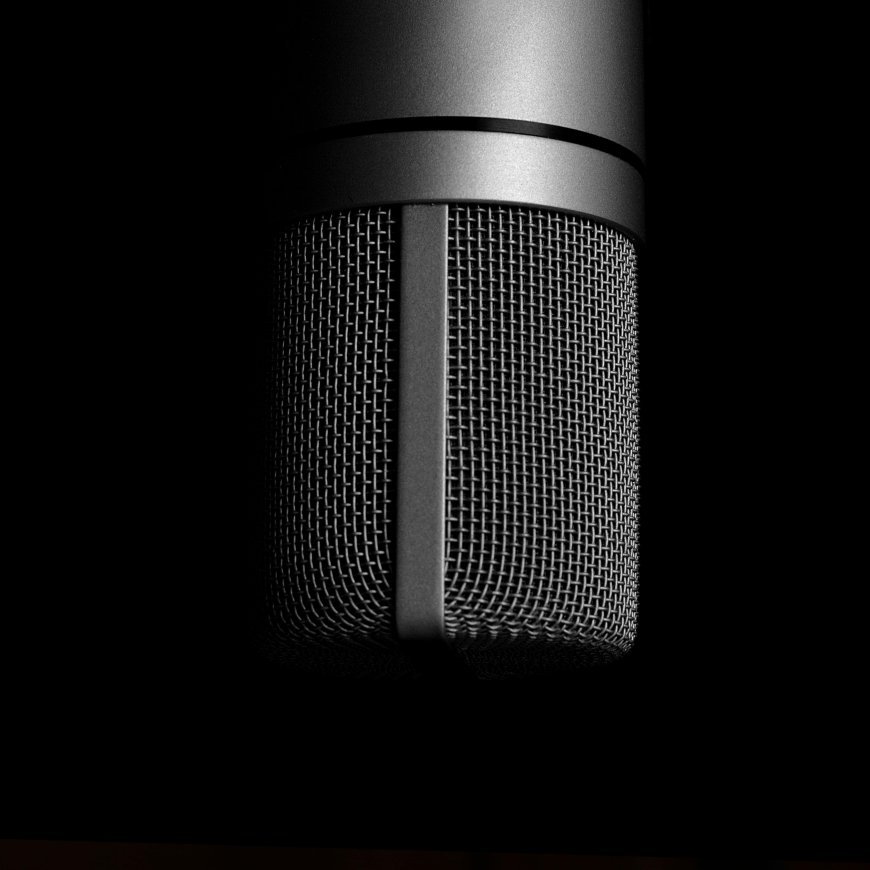Symphony of Sound
Beyond the rhythmic sway of a body or the precise calculations of a number, lies an intelligence tuned to the very vibrations of our world: Sound Intelligence.

This capacity illuminates the profound human ability to perceive, create, understand, and express through the medium of auditory input, particularly music. This isn't merely about appreciating a catchy tune; it's a sophisticated cognitive strength that involves a deep sensitivity to rhythm, pitch, melody, timbre, and harmony, often revealing itself in unique wordings and patterns of thought.
The Auditory Architect
At its core, Sound Intelligence is about an innate connection to sound and its organized forms. Individuals strong in this area possess an acute auditory perception, allowing them to discern subtle differences in tone, tempo, and emotional quality that others might miss. They don't just hear sound; they feel it, analyze it, and often have an intuitive understanding of its underlying structure and emotional impact.
This intelligence manifests in various ways:
- Performance: The ability to play instruments, sing, or conduct with skill, precision, and expressiveness.
- Composition: The talent for creating new melodies, harmonies, and rhythms, often arranging complex musical pieces.
- Appreciation/Analysis: A profound capacity to enjoy, critique, and understand the intricacies of musical works, recognizing genres, historical contexts, and theoretical underpinnings.
- Memorization: An exceptional ability to recall melodies, lyrics, and complex musical sequences.
For those with high Sound Intelligence, music often serves as a powerful form of communication, bypassing conventional wordings to convey emotions, narratives, and abstract concepts. They might think in melodies or rhythms, experiencing the world as a complex orchestration of sounds. Their inner monologue might even be punctuated by musical phrases, rather than purely linguistic ones.
Characteristics of the Sound-Smart Mind
Individuals with strong Sound Intelligence often display a range of discernible characteristics, frequently from a very young age:
- Sensitivity to Sound: They are often highly attuned to sounds in their environment, noticing specific pitches, rhythms, or patterns in everyday noise.
- Early Musicality: Many show an early interest in singing, humming, or experimenting with musical instruments.
- Rhythmic Awareness: They naturally tap their feet, snap their fingers, or move rhythmically to music.
- Good Pitch Recognition: They can often identify specific notes or detect when a note is off-key.
- Emotional Connection to Music: Music evokes strong emotions in them, and they may use music to manage their moods or process feelings.
- Pattern Recognition: They are adept at recognizing and remembering musical patterns, whether in simple tunes or complex symphonies.
- Learning Through Sound: They may find it easier to learn information when it's set to a rhythm or melody, or when they can associate it with a song.
- Creative Expression: They often enjoy creating their own melodies, rhythms, or even entire songs, sometimes using unconventional instruments or sounds. Their wordings when discussing sound might be highly descriptive of auditory textures and emotional states.
Where Sound Intelligence Finds Its Stage
Sound Intelligence is vital across a spectrum of professions, going far beyond just performing artists:
- Musicians/Performers: Instrumentalists, vocalists, and conductors are direct practitioners of this intelligence, bringing compositions to life.
- Composers: These individuals conceptualize and write new pieces of music, requiring deep understanding of harmony, counterpoint, and orchestration.
- Music Producers/Engineers: They shape the sound of recordings, blending technical expertise with an acute musical ear to achieve desired sonic qualities.
- Music Therapists: They use music as a therapeutic tool to address physical, emotional, cognitive, and social needs, leveraging music's powerful impact on the human psyche.
- Music Educators: Teaching music theory, instrument playing, or vocal techniques requires not only musical skill but also the ability to articulate musical concepts effectively.
- Sound Designers: In film, theater, and gaming, sound designers create atmospheric soundscapes and effects that enhance the audience's experience, requiring a nuanced understanding of auditory impact.
- Jingle Writers/Advertisers: Crafting memorable and effective musical advertisements relies heavily on understanding how specific melodies and rhythms influence perception and recall.
- Acoustics Engineers: These professionals design spaces with optimal sound quality, blending scientific knowledge with an intuitive sense of how sound behaves.
Cultivating the Inner Orchestra
While some individuals appear to be "naturally gifted" with sound-related talent, Sound Intelligence is highly amenable to development and refinement. Nurturing this intelligence can enrich one's life, regardless of professional aspirations:
- Early Exposure: Introducing children to various genres of music, singing, and simple instruments can lay a strong foundation.
- Formal Lessons: Learning to play an instrument or take vocal lessons provides structured development of skills.
- Active Listening: Encouraging critical listening, identifying different instruments, rhythms, and emotional shifts in music.
- Group Music-Making: Participating in choirs, bands, or orchestras fosters collaboration and refines performance skills.
- Improvisation & Composition: Experimenting with creating one's own melodies or rhythms encourages creative expression and deeper understanding.
- Music Theory: Studying the underlying principles of music, such as harmony, counterpoint, and form, can deepen analytical capabilities.
Sound Intelligence is a testament to the fact that intellect isn't solely about logical problem-solving, but also about the profound human capacity for aesthetic appreciation and creation through auditory means. It allows us to connect with each other, transcend linguistic barriers, and experience the world in a richer, more vibrant way. The wordings of a poem might articulate an idea, but a melody can imbue it with soul, demonstrating the unique power of a sound-intelligent mind.
What's Your Reaction?
 Like
0
Like
0
 Dislike
0
Dislike
0
 Love
0
Love
0
 Funny
0
Funny
0
 Angry
0
Angry
0
 Sad
0
Sad
0
 Wow
0
Wow
0





















